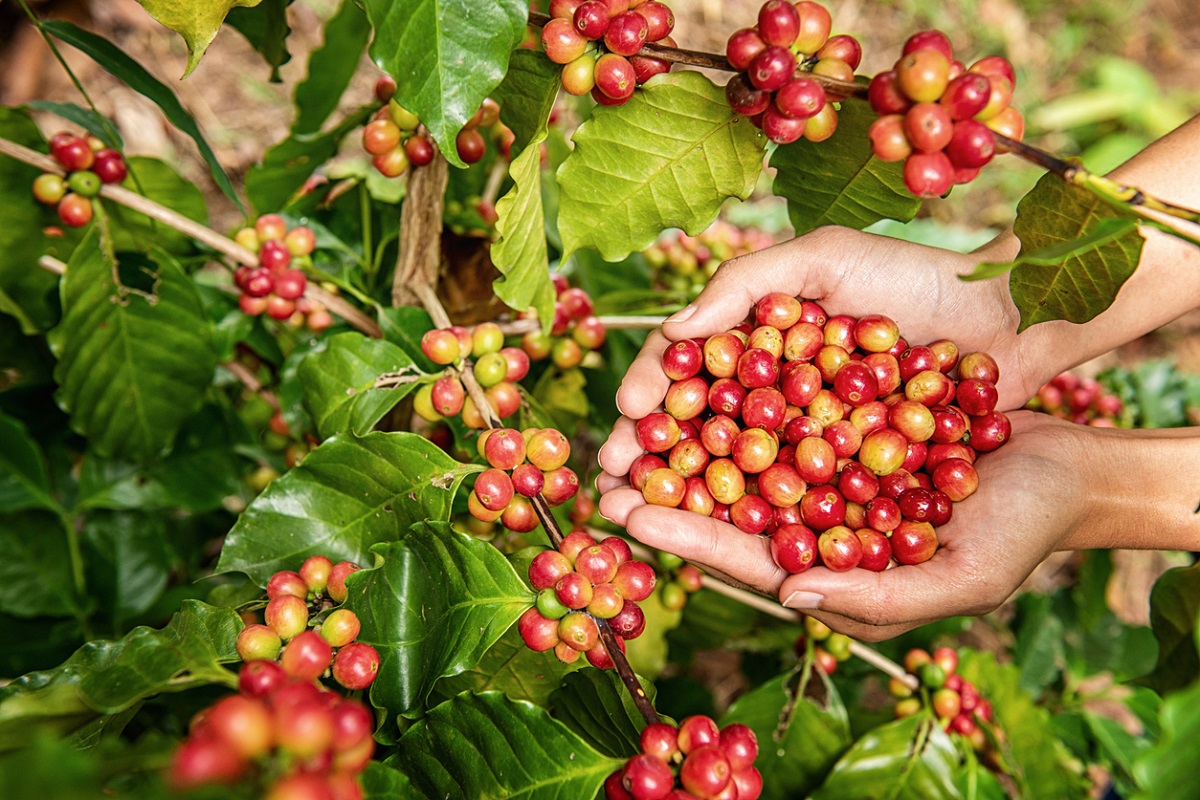
Study Confirms Effectiveness of Transgenic Coffee Against CBB
November 3, 2021| |
Coffee is the second most valuable international crop commodity after oil, and the coffee berry borer (CBB) is one of the main factors that threaten its global trade. Now for the first time, scientists reported the stable transformation and expression of the Cry10Aa protein in Arabica coffee plants with the potential to control the CBB.
The study is a continuation of a protocol that was previously developed for the stable genetic transformation and successful plant regeneration of the Arabica coffee trees with Cry10Aa Bt toxin expression to induce CBB resistance. Through the protocol, a highly somatic embryogenesis (SE) line with a high rate of cell division and conversion to plants with 8-month plant regeneration period was produced. The line then underwent gene expression analysis of master regulators of SE and cell cycle progression were also analyzed during induction and propagation of non-competent and highly competent embryogenic lines.
After three months of selection and one-month plant regeneration, stable genetic lines were produced through particle bombardment technique. The transgenic coffee trees bore fruits after two years, and these fruits were confirmed to express the Bt toxin. Further confirmation of the effects of the transgenic coffee fruits against CBB first instar larvae and adults were done through bioassays, which resulted in induced mortalities between 85% and 100% after 10 days. Seed damage was recorded at lower than 9% in the transgenic lines compared to 100% in the control fruits.
Read the full paper published by Frontiers to learn more.
| |
You might also like:
- Researchers Crack Arabica Coffee Genome
- CRISPR-Cas9 Used to Knock Out Genes in Robusta Coffee
- CIAT Project to Help Coffee Farmers Adapt to Climate Change
Biotech Updates is a weekly newsletter of ISAAA, a not-for-profit organization. It is distributed for free to over 22,000 subscribers worldwide to inform them about the key developments in biosciences, especially in biotechnology. Your support will help us in our mission to feed the world with knowledge. You can help by donating as little as $10.
-
See more articles:
-
News from Around the World
- Global Climate Change Impact on Maize and Wheat Expected Within 10 Years, NASA Study Finds
- OFAB-Kenya Fetes Top Journalists in Science Media Awards
- USDA ARS Scientists Genetically Engineer Ever-Flowering Fruit to Feed Astronauts
- Study Confirms Effectiveness of Transgenic Coffee Against CBB
- Researchers Uncover "Genetic Goldmine" Allowing Plants to Live in Extreme Environment in the Atacama Desert
- Filipino Farmers Disagree on Banning of Biotech Crops
- 4th Asian Short Course on Agri-biotech, Biosafety Regulation, and Communication (ASCA2021)
- Food Futures: Commercialization of Gene Edited Crops in Asia and Australia
- Scientists Discover How Legumes Give Oxygen to Symbiotic Bacteria in their Roots
- European Scientists Call For Better Legislation on Genome-Edited Crops
-
Plant
- Researchers Venture into Gene Editing Research to Produce Improved Strawberries
- Heat-Moisture Treatment Improves Starch Content of Healthy Rice
-
Read the latest: - Biotech Updates (February 11, 2026)
- Gene Editing Supplement (January 28, 2026)
- Gene Drive Supplement (February 22, 2023)
-
Subscribe to BU: - Share
- Tweet

